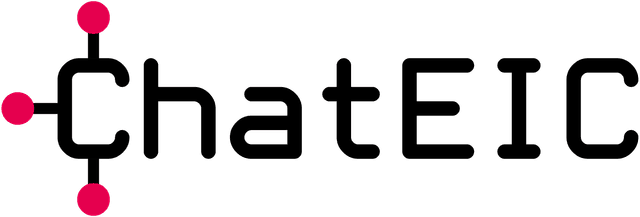
Glitches on the EIC Accelerator's AI Platform and Changes to the Work Programme (SME Instrument)
In 2021, the EIC Accelerator blended financing (formerly SME Instrument Phase 2, grant and equity) has been re-launched into its most sophisticated iteration yet. With a new AI Tool, a semi-automated evaluation process and a clear focus on disruptive projects, it has now opened its doors for Small- and Medium-Sized Enterprises (SME) and startups in the European Union (EU) and associated countries (read: New Process).
Right after the launch of this new platform, many applicants as well as professional writers, freelancers and consultants have noticed that there were still quite a few errors and glitches that showed up. This article presents a shortlist of noticeable areas that were affected by such glitches and also discusses some of the changes to the 2021 Work Programme which differ from the unpublished draft version discussed earlier (read: The Work Programme).
Changes & Glitches
Geographic Restrictions & Diversity
The draft version of the EIC Accelerator Work Programme discussed the requirement for geographic diversity which meant that all applicants applying to the grant would need to be invited to the Step 3 interviews in proportion to the number of received applications (read: Interview Preparation & How To Succeed). This would have been an extreme measure since it could have incentivised countries to prepare many low-quality applications to boost their chances in Step 3 of the process. Luckily, this rule was removed.
Non-Binary Gender
The latest template for the EIC Accelerator's AI Platform and the draft for Horizon Europe proposals indicated non-binary as an option for the gender selection of the applicant's CEO (read: The EIC Youtube Leak). This, of course, was an example of the European Union being too progressive for its own good (read: Gender Identification vs. Gender Equality).
The EU's strong gender equity agenda enforces the funding of 35% female CEO's under the EIC Accelerator which presents 7-times the number at which female CEO's would naturally be funded in the program. If a non-binary CEO who was born as a woman was treated like a man with respect to this agenda or, even worse, a transgender person identifying as a woman was treated like a man - the EU would have a political disaster on their hands.
Eventually, the European Innovation Council (EIC) has decided that this political double bind between gender identification and gender equality was too much to handle and reverted back to giving only a single third gender option: Unspecified - which is treated as male and lacks the benefits of choosing female.
TRL Descriptions
The Technology Readies Levels (TRL) and Market Readiness Levels (MRL) have been changed even after the opening of the call on April 9th whereas on Friday, it still stated that TRL6 required 100 customers, while on Monday, it reverted back to only requiring pilot studies and a prototype. This is significant since the change happened after the call was already open which means that many applicants could have applied under false premises (read: TRL Levels Explained).
AI Tool Diagnostics Results
Another change over the weekend after April 9th was that the Diagnostics evaluation feedback by the AI Tools changed drastically. The technical breakthrough scorings were quite easy to 'max out' to the top of the A-chart while breakthrough scientific scores were much harder to increase. On Monday, the scoring difficulty was reversed even though no changes were made to the proposal text.
On Monday, an A in technical scores can have turned into a B while the scientific scores saw the opposite change happen. Once again, there are a number of applicants who might have applied under false premises since the call was already accepting submissions.
Budget & Evaluation
The Work Programme has seen some minor adjustments in the budgeting and evaluation process but these were not dramatic and will not significantly impact the success chances of applicants.
One relevant part of these changes is the automatic coverage of the 30% co-financing of the grant by the equity financing if blended financing is selected. This means that, if an applicant wants to request €5M in equity from the EIC Fund then this will be in addition to the 30% of the grant contribution (read: EIC Fund Behind the Scenes). Applicants also have to estimate the co-financing of their Series A or similar round and identify the outside contributors.
Glitches and Errors
Since the AI Platform for the EIC Accelerator is new, it is expected that bugs and errors will be encountered frequently. Still, there was a discrepancy in the performance between different accounts whereas one account had a smooth opening and saving of the proposal while others were exhibiting long loading times, errors and shutdowns.
One of the most severe glitches observed was the replacement of the Abstract of the proposal by the Solution section which ended up appearing twice in the final proposal. This was an automatic replacement that happened in some accounts over the weekend after April 9th.
For all applicants who have applied early to the EIC Accelerator, it is worth looking back at their submitted application and double checking if their Abstract was affected. If it was, it is advisable to contact support@accelerator.eismea.eu as soon as possible to correct this error so that the evaluation will not suffer from this mistake.
These tips are not only useful for European startups, professional writers, consultants and Small and Medium-Sized Enterprises (SME) but are generally recommended when writing a business plan or investor documents.
Deadlines: Post-Horizon 2020, the EIC Accelerator accepts Step 1 submissions now while the deadlines for the full applications (Step 2) under Horizon Europe are listed below. The Step 1 applications must be submitted weeks in advance of Step 2. The next EIC Accelerator cut-off for Step 2 (full proposal) can be found here. After Brexit, UK companies can still apply to the EIC Accelerator under Horizon Europe albeit with non-dilutive grant applications only - thereby excluding equity-financing. Switzerland has resumed its participation in Horizon Europe and is now eligible for the EIC Accelerator.
EIC Accelerator Step 1 Deadline 2025
Contact: You can reach out to us via this contact form to work with a professional consultant.
AI Grant Writer: ChatEIC is a fully automated EIC Accelerator grant proposal writer: Get it here.
EIC Accelerator: EIC Accelerator delivers flexible funding options including blended finance (€2.5M grant + €0.5M-€10M equity), grant-only (up to €2.5M), or equity-only arrangements for scale-up and market deployment of breakthrough innovations. The initiative targets SMEs, start-ups, and small mid-caps with up to 499 employees. Technology areas include Biotech, Engineering, Artificial Intelligence, Energy, Quantum, Aerospace, Advanced Materials, and Semiconductors. Get Started
EIC Pathfinder: EIC Pathfinder delivers up to €3 million for Open calls and up to €4 million for Challenge-based calls to support early-stage research and development with proof-of-principle validation. The initiative requires research consortia with a minimum of 3 partners from 3 different countries, including universities, research organizations, and SMEs. Primary technology focus areas include Health/Medical, Quantum Technologies, AI, Environmental/Energy, and Advanced Materials. Get Started
EIC Transition: EIC Transition delivers up to €2.5 million in funding to overcome the 'valley of death' gap between laboratory research and market deployment, emphasizing technology maturation and validation. The initiative supports single legal entities or small consortia of 2-5 partners including SMEs, start-ups, spin-offs, and research organizations. Key technology domains include Health/Medical Technologies, Green/Environmental Innovation, Digital/Microelectronics, Quantum Technologies, and AI/Robotics. Get Started
EIC STEP Scale-Up: EIC STEP Scale-Up delivers significant equity investments of €10-30 million for established deep-tech companies prepared for hyper-growth and large-scale expansion. The initiative targets SMEs or small mid-caps with up to 499 employees who have obtained pre-commitment from qualified investors. Primary focus areas include Digital & Deep Tech (Semiconductors, AI, Quantum), Clean Technologies for Net-Zero objectives, and Biotechnologies. Get Started
EIC Pre-Accelerator: EIC Pre-Accelerator represents a pilot initiative delivering €300,000-€500,000 in funding for early-stage deep-tech development and preparation for the EIC Accelerator program. This program is exclusively accessible to single SMEs or small mid-caps from 'Widening countries' to foster regional innovation development. The initiative encompasses deep-tech innovations across physical, biological, and digital domains. Get Started
EIC Advanced Innovation Challenges: EIC Advanced Innovation Challenges represents a new pilot initiative delivering €300,000 (Stage 1) and up to €2.5 million (Stage 2) for breakthrough deep-tech innovations through ARPA-style staged funding mechanisms with integrated demand-side engagement. This initiative targets single entities or small consortia (2-3 partners) including SMEs, start-ups, and research organizations. Primary focus areas include Physical AI for autonomous robotics applications and New Approach Methodologies (NAMs) for animal-free biomedical testing, with TRL 4 entry requirements and demonstrated end-user commitment. Get Started
Eureka Network: The Eureka Network delivers various international collaborative R&D initiatives such as Network Projects, Clusters, Eurostars, Globalstars, and Innowwide, providing funding from €50K to €6.75M per project based on the specific initiative. This network emphasizes market-driven innovation and deep-tech advancement across multiple technology sectors including ICT/Digital, Industrial/Manufacturing, Bio/Medical Technologies, Energy/Environment, Quantum, AI, and Circular Economy. Eligible participants include SMEs, large enterprises, research organizations, universities, and startups, with Eurostars particularly focused on R&D-performing SMEs. Get Started
Eurostars: Eurostars represents a joint EU-Eureka initiative delivering €50K-€500K for international R&D collaboration specifically led by SMEs. The program adopts a bottom-up approach, accepting projects from all technology fields without predefined thematic restrictions. R&D-performing SMEs must lead the consortium and demonstrate significant R&D activities. Get Started
Innovation Partnership: Innovation Partnership enables collaborative innovation between public and private sectors with typical funding of €1-5 million per project. The initiative supports cross-sectoral strategic technologies through public-private partnerships and consortia. Projects concentrate on addressing societal challenges through collaborative innovation approaches. Get Started
Innovation Fund: The EU Innovation Fund delivers substantial funding of €7.5 million to €300 million for large-scale demonstration of innovative low-carbon technologies. The initiative targets clean energy, carbon capture, renewable energy, and energy storage technologies to accelerate the transition to a low-carbon economy. Eligible participants include large companies, consortia, and public entities capable of implementing large-scale demonstration projects. Get Started
Innovate UK: Innovate UK delivers various programs with funding ranging from £25K to £10M depending on the specific initiative, supporting business-led innovation, collaborative R&D, and knowledge transfer. The organization funds projects across all sectors with particular emphasis on emerging technologies and supports UK-based businesses, research organizations, and universities. Programs are designed to drive economic growth through innovation and technology commercialization. Get Started
Industrial Partnership: Industrial Partnership delivers €2-10 million in funding for industrial research and innovation partnerships focusing on manufacturing, industrial technologies, and digital transformation. The initiative supports industrial consortia and research organizations in developing collaborative solutions for industrial challenges. Projects aim to strengthen European industrial competitiveness through strategic partnerships. Get Started
LIFE Programme: The LIFE Programme delivers €1-10 million in funding for environmental protection, climate action, and nature conservation projects across the European Union. The initiative supports environmental technologies, climate adaptation strategies, and biodiversity conservation initiatives. Eligible participants include public authorities, private companies, NGOs, and research institutions working on environmental and climate challenges. Get Started
Neotec: Neotec represents a Spanish initiative delivering €250K-€1M in funding for technology-based business creation and development, supporting the growth of innovative Spanish SMEs and start-ups. The program covers all technology sectors and aims to strengthen Spain's technology ecosystem. Funding is specifically targeted at Spanish technology-based SMEs and start-ups to enhance their competitiveness and market presence. Get Started
Thematic Priorities: EU Thematic Priorities encompass various programs aligned with EU strategic priorities including green transition, digital transformation, health, and security initiatives. Funding amounts vary based on the specific program and call requirements, with projects designed to address key European challenges. Applicant eligibility varies by specific program and call, with different requirements for different thematic areas. Get Started
Any more questions? View the Frequently Asked Questions (FAQ) section.
Want to see all articles? They can be found here.
For Updates: Join this Newsletter!
